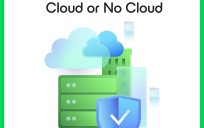State governments are beginning to focus on website analytics, something we here at GovLoop are very familiar with. They are taking advantage of Google Analytics, a free tool which assesses hits and traffic, to determine how people are utilizing their websites. States like California are even publishing these statistics right on their homepages for people to view.
California has created a dashboard which allows users to see how many people are on any given California website at that time. On weekday afternoons, there could be as many as 40,000 users logged in. There are also 2.4 million monthly visitors via mobile devices, which equates to 12% of total traffic.
How States are Embracing Website Analytics
The statistics have practical applications, like getting an idea of which programs and agencies are the most contacted by citizens. 5% of all visitors to California government websites are frequenting the states Employment Development Department, likely because of 11% unemployment in the state.
Joseph Morris, the Center for Digital Government’s lead analyst believes this is an effort to promote open government. He says:
“States are looking to better serve the needs of their citizens by delivering information in a variety of formats including real-time data feeds, local-based services and through social media,”
Will you encourage your state government to make this type of data available? Do you find the data useful?




I can’t think of a scenario right now where knowing these state site stats would be useful to me, but they are obviously useful to the states in figuring out which content, campaigns, etc. are working and why.
Such information would be really useful. States could use these numbers to redesign their sites around the “top tasks” of site visitors, instead of organizing content by departments.
As the web content manager for a small state agency, I find Google Analytics to be a great tool and it’s very easy to use. I mostly use it to gauge visitor interest, drive traffic to certain content, and gain insight to what the visitors want and need from the website (content- and technology-wise).
I know my state recently redesigned its website using a content management system, and I imagine it’s gathering data across all of its new features–mobile-friendly website, user survey, and social media pages/plug-ins. I think it’s great–and about time! 🙂
Joe and Kimberly, do you see any utility for everyday citizens to use this data?
I implemented WebTrends Analytics for my state govt agency in 2007 while on a small web team responsible for managing an enormous web environment. I had a vision for over time rolling it out to our many program areas and press office so they could manage their own profiles — most programs have their own subsites; Press office is responsible for what’s communicated via web to the public, so it only made sense to me they be given some autonomy to generate reports in this powerful enterprise analytics environment since that’s what it’s designed to do. But our web team was seriously understaffed, thus I only got so far in my vision before management pulled the plug – all upgrades to WebTrends must go on hold. Meanwhile, for six years I primarily used it for purposes in our IT bureau, and had to settle for “running reports” per request for press and programs. I know that’s not optimal – just “running reports” by request provides little business value and might even be misleading.
As a web admin, I don’t know how we could have managed without analytics; it provided a comprehensive view for me into our web environment, for example, to identify major problems, plan migrations, redesigns, discover security risks, catch sql injection attacks, unearth breaches of policy, and mitigate potential legal nightmares, pull outdated incorrect info lurking where public is finding it. That’s just scratching the surface of how useful it was even just barely getting going to where I hoped to see it grow someday.
Unfortunately, I was a lone voice in the importance of analytics. Not long ago I was told by management “we don’t need web analytics anymore because Press isn’t requesting reports”. Huh?
Anyway I’m very glad to see this topic come up within context of government. I am a firm believer in analytics as a critical component of web operations management. To operate a web environment without competent web analytics is like operating a tractor-trailer blindfolded.
Corey, I’m not really sure since my use is primarily for content development. Maybe including a “Popular Pages” module on a website would be any interesting way visitors could use this data. I see delivering content in a responsive way as the primary utility for everyday citizens. Or maybe I’m just too analytically challenged to see the flip-side? Which makes yours a really good question! 🙂
I think that data should be provided to the public, the same way that other datasets are provided. Clever web developers and open government advocates could come up with new ways of looking at government sites. Are they loading fast enough? Where’s the traffic coming from? How long do people spend on government sites? Do government sites get people to the information they want quickly and efficiently? This would be useful for the public to see the impact government sites have and how they could be improved. Sites with little traffic could also be shut down or consolidated.
We’ve been using Google Analytics for years and we love it for our sites. What methods are the agencies using for automating the reporting process (publish to web) if it’s near real-time? I could accept the workload for a manual process if we were only posting say, once a month.
I’m taking a new look at GA. At first, when we really didn’t have much more than a 90’s style website, the emphasis was on getting something new up and returning to analytics later. That’s reflected in the largely top-level metrics that we follow.
But now I’m catching up to my early 2011-self and what I believe I need to use GA for is to track usage of traffic to transaction pages, downloadable pdf’s that have to do with customer service, where an exit page is a form related to an application, etc. I’d also like to see more information on keywords and related landing pages. If we are committed to using the web for better customer service; how is it going? How can we use this information to make it easier to find pages? Although it wouldn’t be good to use black hat, it might work to use these keyword combinations in link meta text.
Just some thoughts, still working…